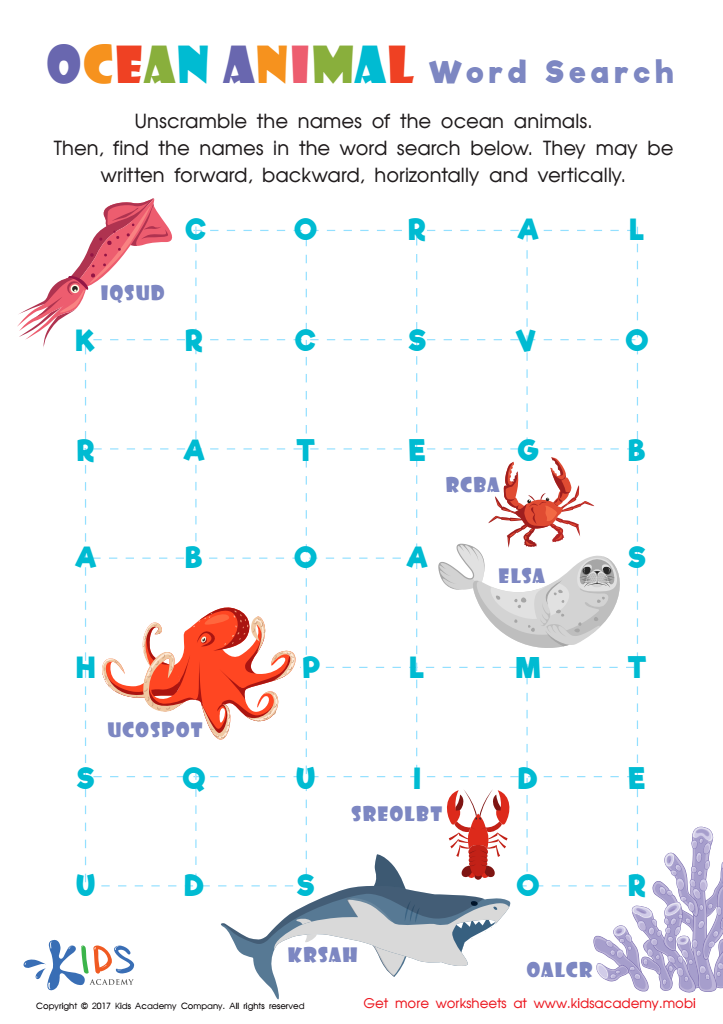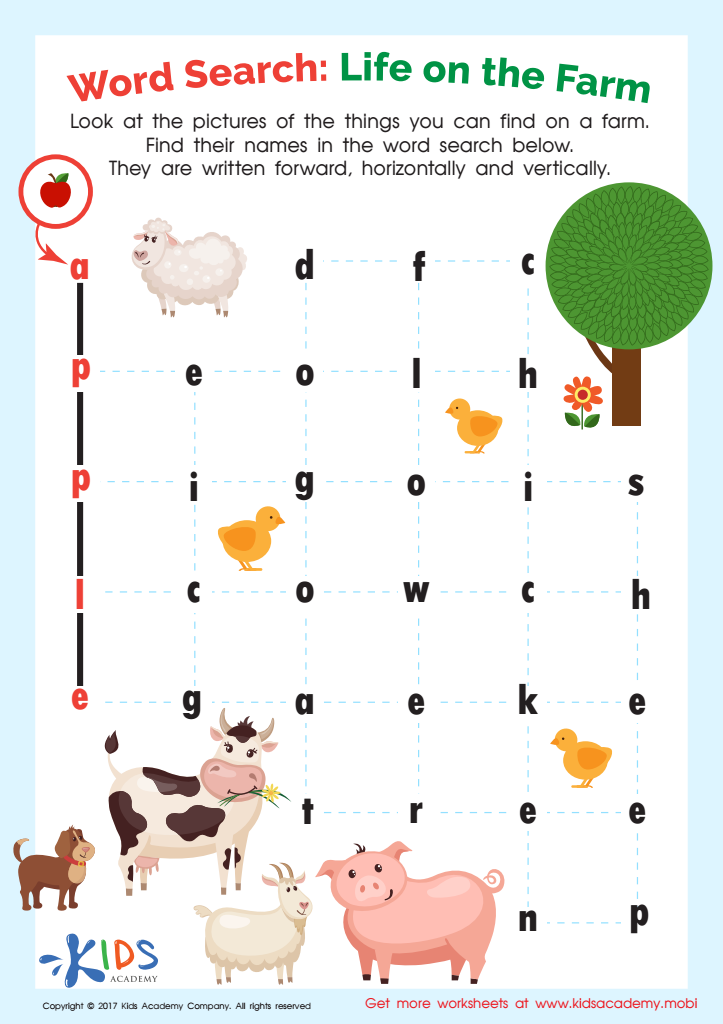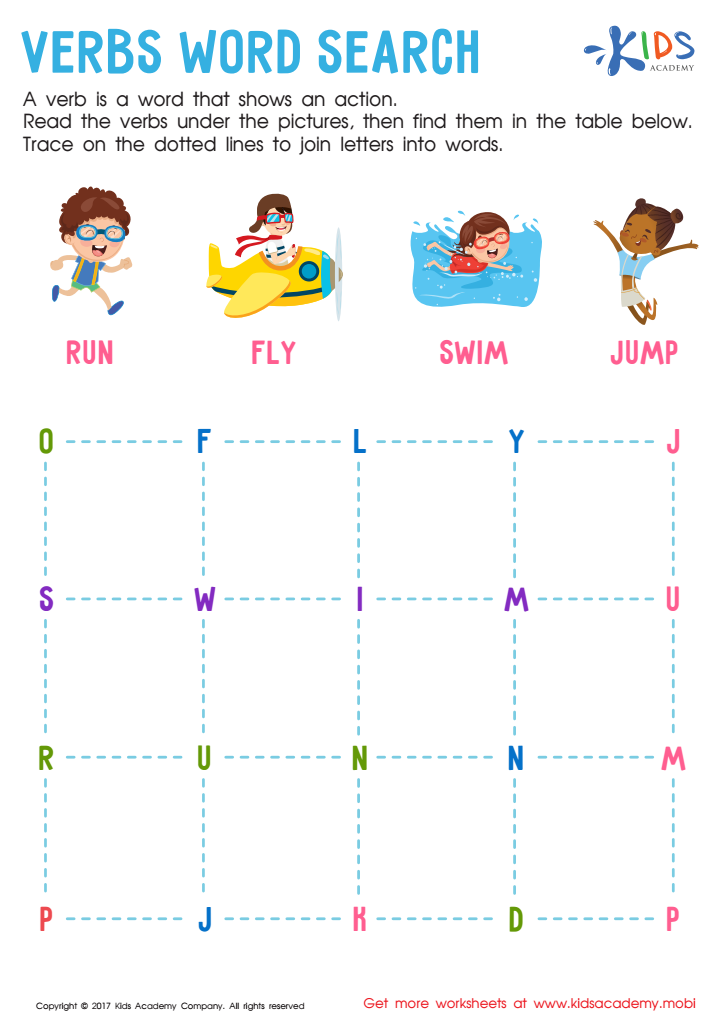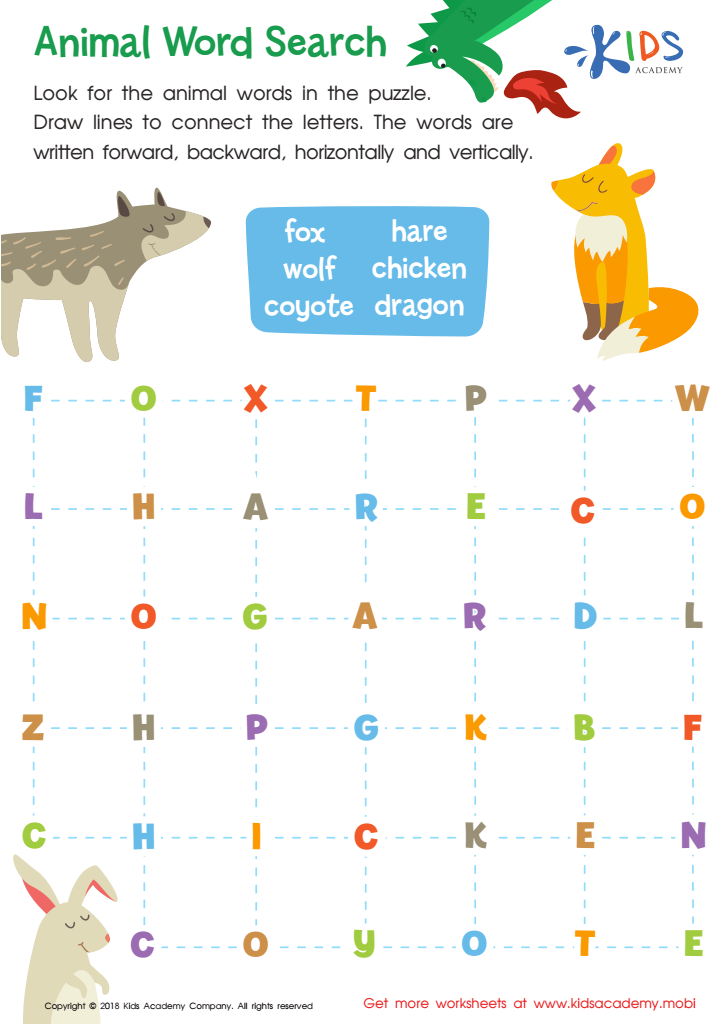Word Recognition Word Scramble Worksheets for Ages 6-7
4 filtered results
-
From - To
Boost your child's reading skills with our engaging Word Recognition Word Scramble Worksheets designed specifically for ages 6-7. These interactive worksheets make learning fun by challenging young learners to unscramble words while reinforcing their vocabulary and understanding. Ideal for early readers, our thoughtfully crafted activities promote word recognition and critical thinking, helping children develop essential literacy skills in a playful manner. Each worksheet is tailored to spark interest and encourage independent learning. Perfect for classroom use or at-home practice, these word scramble activities support your child's educational journey while instilling a love for reading. Try them today and watch your child's confidence soar!


Ocean Animals Word Search Printable


Word Search Puzzles Worksheet


Verbs Word Search Worksheet


Animal Word Search Worksheet
Word Recognition Word Scramble is an engaging activity that offers numerous benefits for children aged 6-7. At this critical stage of literacy development, children are honing their reading and spelling skills, making it crucial for parents and teachers to foster effective learning strategies.
First, word scrambles enhance vocabulary comprehension. By rearranging letters to form recognized words, children practice pattern recognition, which strengthens their understanding of language structure. This exploration helps them identify and retain new words, expanding their vocabulary.
Additionally, engaging in word scramble activities boosts spelling abilities. As children manipulate letters to decode words, they internalize spelling rules and letter combinations, which are essential for proficient reading and writing.
Moreover, these exercises can make learning fun, creating a positive attitude toward education. Incorporating games like word scrambles fosters a playful environment, encouraging children's participation and motivation.
Finally, word recognition scenes contribute to cognitive development, promoting problem-solving skills and critical thinking as children strategize ways to unscramble letters.
In summary, integrating Word Recognition Word Scramble into educational practices not only supports vital literacy skills but also empowers children to become enthusiastic, lifelong learners. Parents and teachers alike should prioritize such activities in their teaching methods.

 Assign to My Students
Assign to My Students
















